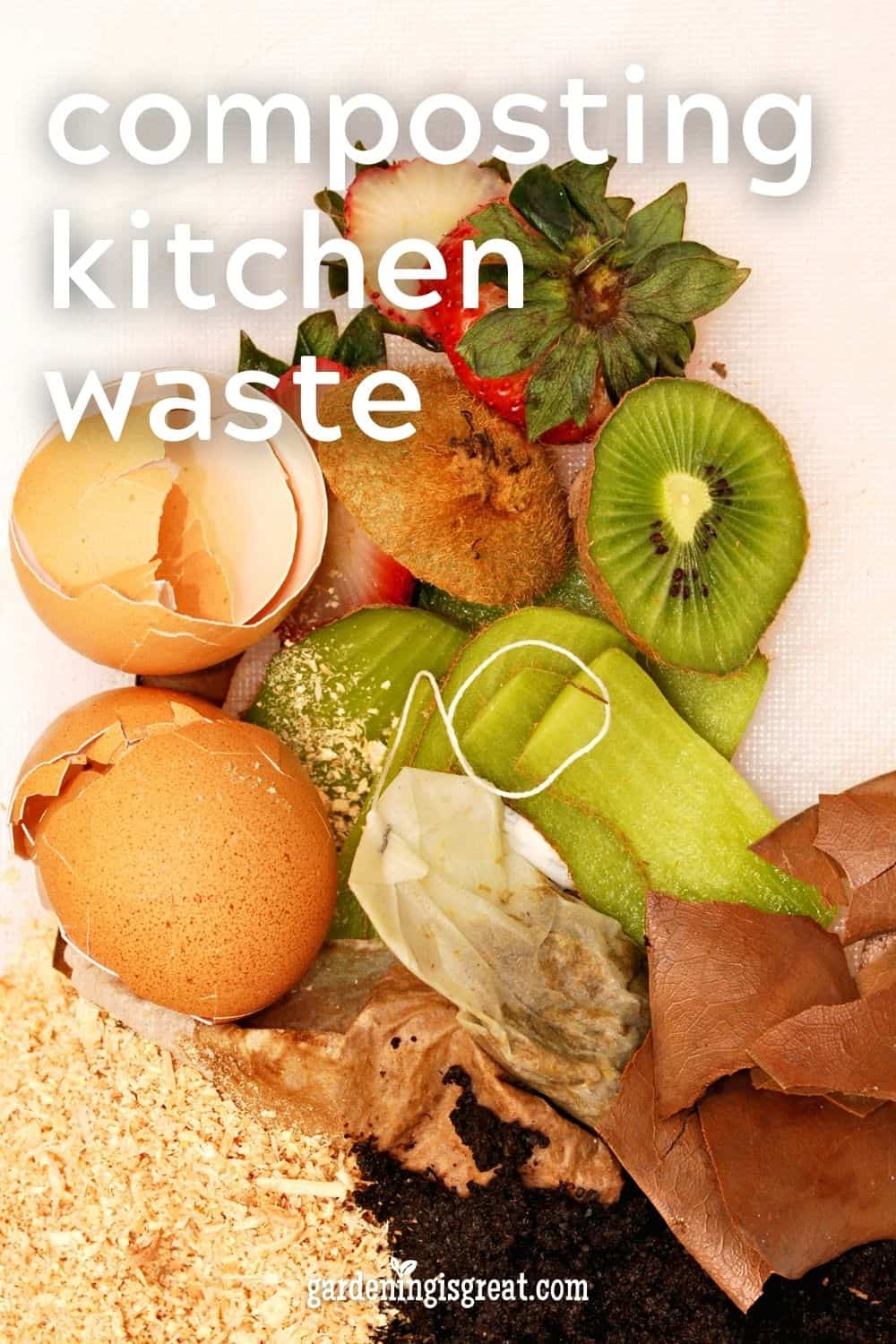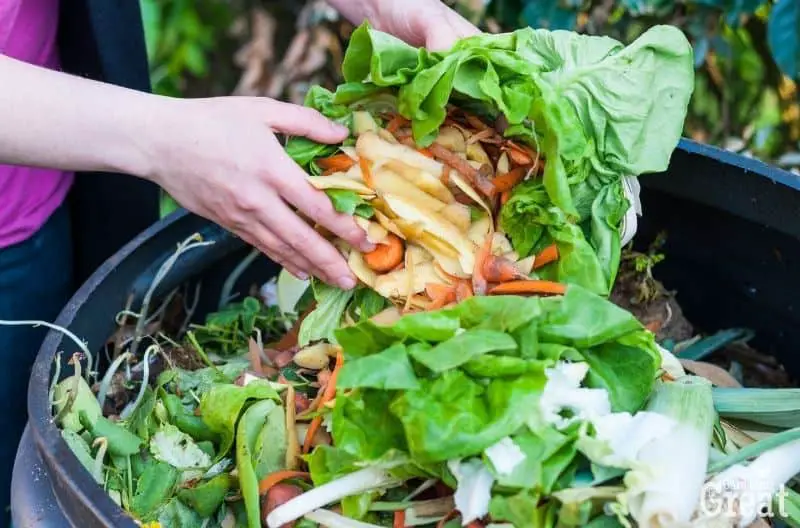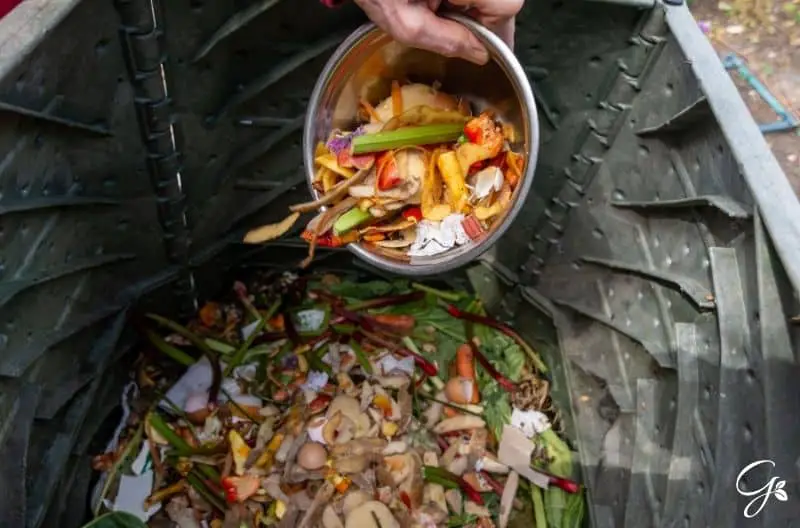Kitchen Trash You Should Be Composting
If you are a gardener working toward a productive and bountiful garden, having a compost pile is essential.
If you are new to composting, you may not know everything that can be composted and may even be throwing good, organic material away.
For those looking to grow their compost pile and use more of their kitchen waste, this list of kitchen trash you should be composting is a great place to start.

What Kitchen Trash is Good to Compost?
Most people who compost already have some idea of what can be composted and what can not be composted, but it never hurts to have a refresher. After all, if your goal is to build a decently sized compost pile with rich, nutritious soil, you will want your compost soil the best it can be.
As you go through this list, you may discover that you have been missing great things to add to your compost pile.
Can Fruit and Vegetable Scraps Be Composted?
It is common knowledge that you can compost fruits and vegetables, but you may not know which can be composted. Almost every vegetable and its scraps can be added to a compost pile with only a couple of exceptions.
While certain fruits and vegetables should be composted in moderation, most can be freely added.
Those that should be added with care, such as onions, peppers, and garlic, can still be composted. They just must be added in moderation.
The papers from garlic and onions are perfectly fine to add whenever you have them. However, adding too many garlic, onion, or pepper scraps can cause your composted soil to become too acidic.
As far as fruits, all may be added to your compost. However, you will want to be mindful not to add too many seeds. If you do, you may find that one takes off growing and end up with a berry bush or avocado tree in the middle of your compost pile.
Can Egg Shells Be Composted?
If you throw eggshells into the garbage, you miss a vital source of calcium for your final soil. They are such a great addition to your compost pile and incredibly easy to add.
Eggshells require very little preparation to compost. All you need to do is crush them slightly with your hands. Once that is done, add them to your compost mixture and mix them the next time you turn your compost.
Throw “Clean” Paper Towels, Paper Plates, and Napkins in Your Compost
As you clean your kitchen or eat dinner, mind your trash. Clean paper towels, meaning those without cleaning chemicals on them, paper napkins, paper plates without a wax coating, and so on, are all great “brown” additions to your compost pile.
These products help your compost pile stay balanced.
If it is too green, you may have too many rotting smells and imbalanced soil. By composting clean paper waste, you will give your soil the balance it needs.
Add Coffee Grounds or Tea to Your Compost
Your morning cup of coffee or tea can help you have excellent composted soil, as coffee grounds are a fantastic way to add nitrogen to your composted soil.
The grounds from your coffee and the tea bag from your herbal tea are perfect for adding. There is no need to prepare them in any particular way. Dump the grounds on top. If your teabag has staples in it to hold the string on, you will need to remove that, but other than staples, the entire tea bag is compostable.
Your coffee filter, including those inside K-cups, is fully compostable as well. To get to the K-cup filter and grounds, peel the foil lid off, dump the coffee grounds and pull the filter out to add to your compost mixture.
Don’t Throw Product Packaging in the Trash.
Most products you buy in the store have much more packaging than necessary. While it is wasteful, it can benefit your compost pile.
Product packaging such as paperboard boxes such as what cereal comes in, or paper seasoning envelopes is all able to be added to your compost pile.
Before you compost, take the time to rip the packaging into smaller pieces and remove any glue areas. This glue is not safe for your compost pile and should be thrown away instead.
A few great examples of these packagings are:
- Cardboard egg cartons, but not styrofoam cartons
- Cereal boxes
- Freezer/storage bag boxes
- Cardboard milk cartons if it does not have a waxy coating
- Common snack boxes such as what fruit snacks or breakfast bars come in
- Dry soup packets without a waxy coating
When it comes to composting product packaging, you will want to be mindful of any coatings. These coatings could introduce unnecessary toxins to your compost pile, which would ultimately transfer to your garden plants.

Composting Kitchen Trash FAQs
Here are answers to the most frequently asked questions about composting kitchen waste.
Items including meat, fish, or poultry scraps, dairy products, fats, grease, lard, or oils should NOT be put in your compost.
You can compost vegetables in any form: scraps, peels, raw, cooked, and even rotten.

Interested in learning more about composting? Be sure to check out these next:
